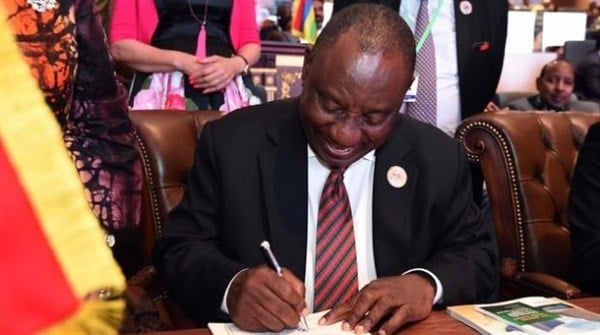
The AfCFTA, if effectively implemented, will drive down the cost of trading goods and services within Africa. The AfCFTA will cover a market of 1.2 billion people, projected to reach 2.5 billion by 2050, and a combined gross domestic product (GDP) of more than $3.4 trillion.
Tim Harris, CEO of Wesgro, said: “This is a very welcome prospect for our Western Cape companies that do business in the rest of Africa. The Western Cape is already harnessing the potential of intra-Africa trade, with the continent overtaking Europe as the number one destination for Western Cape exports in recent years. In 2017 exports from the Western Cape to the rest of Africa amounted to R45 billion, while exports to Europe were worth R36 billion, and Asia R23 billion. The rest of Africa is also the largest destination for investment by Western Cape companies, accounting for more than 50% of outward investment.”
The objectives of the AfCFTA include the creation of a single market for goods, services, and movement of persons in order to deepen the economic integration of the African continent. The agreement includes undertakings by member states to: progressively eliminate tariffs and non-tariff barriers to trade in goods; progressively liberalise trade in services; cooperate on investment, intellectual property rights, competition policy, customs matters, and all other trade-related areas between Member States; and to establish a dispute settlement mechanism.
Although full implementation of the AfCFTA will still take years, South Africa’s signing of the agreement is a significant step. Sierra Leone, Lesotho, Burundi and Namibia also signed the agreement on Sunday, 1 July, bringing the number of countries that have signed to 49. The AfCFTA agreement will enter into force once ratified by 22 countries. The United Nations Economic Commission for Africa estimates the AfCFTA has the potential to boost intra-Africa trade by 52% by eliminating or reducing tariffs, and to further double that figure through the elimination of non-tariff barriers.